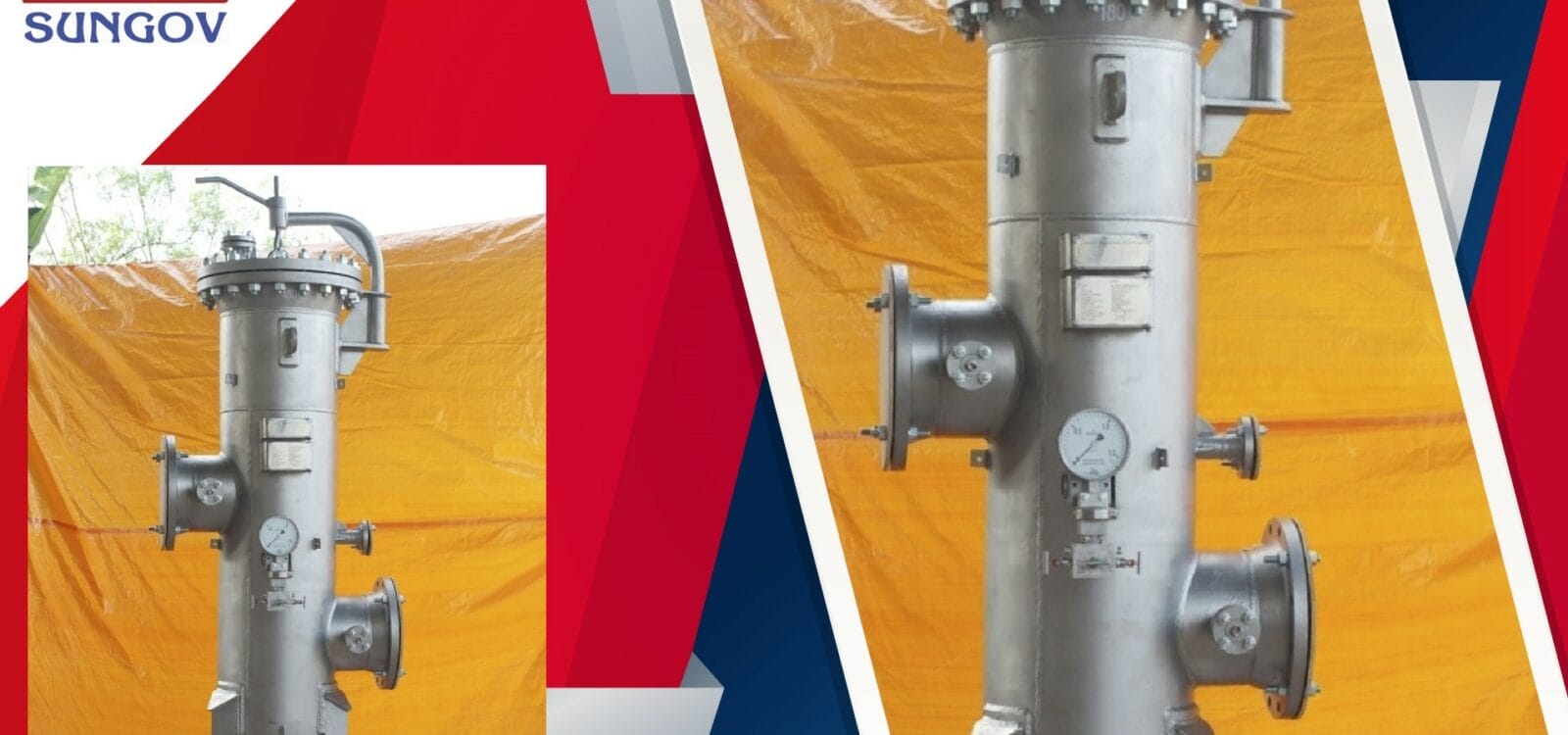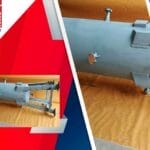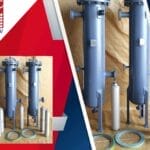Take a trip into the realm of filtration, where air and oil come together in a symphony of engineering wonders. In this exploration, we dive into the procedures that convert gases into refined fuels and liquids driven by the brilliance of filtration technologies. From the skies, to underground reservoirs each phase of this dynamic journey showcases human creativity and the unwavering quest, for effectiveness. Come along as we uncover the secrets of dry gas filtration, fuel refinement and liquid purification, shedding light on the role these processes play in shaping our world.
A Bit More About Dry Gas Filters
Dry gas filters stand as the silent guardians against the intrusion of particulate matter and contaminants in gas streams, ensuring purity and efficiency in a multitude of industrial applications. Operating on principles as diverse as inertial impaction, interception, and electrostatic attraction, these filters meticulously trap particles suspended in gas streams, safeguarding sensitive equipment and processes downstream. Whether deployed in natural gas pipelines, chemical manufacturing plants, or HVAC systems, dry gas filters come in an array of designs tailored to specific requirements, from compact cartridges to sprawling filter banks. By intercepting particles down to submicron sizes, these filters not only preserve the integrity of gas supplies but also mitigate environmental risks and uphold stringent regulatory standards. As industries continue to evolve, the innovation and refinement of dry gas filtration technologies remain indispensable in the quest for cleaner, more efficient operations.
All That You Need to Know About Liquid Cartridge Filters
Liquid cartridge filters are essential components in filtration systems that are designed to remove impurities from liquids in various industrial applications. They consist of a cylindrical housing typically made of materials like polypropylene, stainless steel, or other corrosion-resistant metals, with a replaceable cartridge inside.
The cartridge itself is composed of a porous material, such as paper, polyester, polypropylene, or other synthetic fibers, arranged in layers or pleats. These materials are chosen based on their ability to capture and retain particles of various sizes, ranging from large debris to microscopic contaminants.
Liquid cartridge filters function through a combination of filtration mechanisms, including mechanical interception, where particles are physically trapped within the fibers of the cartridge as the liquid flows through, and adsorption, where certain contaminants adhere to the surface of the filter media.
The design of liquid cartridge filters allows for efficient removal of suspended solids, sediment, rust, dirt, and other impurities from liquids such as water, chemicals, oils and more. They are available in a wide range of sizes, micron ratings, and configurations to accommodate different flow rates and filtration requirements.
One of the key advantages of liquid cartridge filters is their versatility and ease of use. They can be installed as standalone units or integrated into larger filtration systems, and their modular design allows for quick and simple replacement when the cartridge becomes saturated or clogged with contaminants.
What is To Know About Lube Oil Filters
Lube oil filters are specialized filters designed specifically for the purification and maintenance of lubricating oil used in engines, machinery, and other mechanical systems. These filters play a critical role in ensuring the smooth operation and longevity of equipment by removing contaminants that can degrade lubricants and compromise performance.
Lube oil filters typically consist of a housing containing a replaceable filter element or cartridge. The housing is constructed from durable materials such as stainless steel and is designed to withstand the high pressures and temperatures often encountered in lubrication systems.
The filter element itself is engineered to capture and retain a wide range of contaminants present in lubricating oil, including dirt, metal particles, carbon residues, and sludge. It is composed of a porous medium, such as cellulose, synthetic fibers, or metal mesh, arranged in a configuration that maximizes surface area and filtration efficiency.
As lubricating oil circulates through the filter housing, it passes through the filter element, where contaminants are trapped and held captive. Clean oil then exits the filter and continues its journey through the lubrication system, ensuring optimal lubrication and protection for critical components such as bearings, gears, and engine parts.
Lube oil filters employ various filtration mechanisms, including mechanical filtration, where particles are physically trapped in the filter media, and adsorption, where certain contaminants adhere to the surface of the filter material. Some advanced lube oil filters may also incorporate additional features such as magnetic filtration or centrifugal separation to enhance efficiency and extend service intervals.
Regular maintenance and replacement of lube oil filters are essential for maintaining the cleanliness and effectiveness of lubricating oil in machinery and engines. By ensuring proper filtration, lube oil filters help to prolong the life of machinery, reduce maintenance costs, and optimize performance, ultimately contributing to the reliability and efficiency of industrial operations.
Sungov Engineering’s Role As a Leading Filtration Packages Manufacturer
Sungov Engineering is instrumental in providing comprehensive solutions for the purification and filtration needs of various industries that range from oil and gas to pharmaceuticals and water treatments. We help design, engineer, and fabricate filtration systems and packages that are tailored to specific applications, offering a wide range of products and services to meet diverse requirements.
Custom Engineering: Our robust in-house engineering teams are equipped with expertise in fluid dynamics, materials science, and mechanical design. The team works closely with clients to understand their filtration challenges and develop customized solutions that optimize performance, efficiency, and cost-effectiveness.
Product Range: We have on offer a diverse portfolio of filtration products, that include filter housings, cartridges, bags, membranes, and complete filtration systems. These products are available in various materials, sizes, and configurations to accommodate different flow rates, pressure levels, and contaminant types.
Turnkey Solutions: We are experts at providing turnkey solutions that encompass the design, fabrication, installation, and commissioning of complete filtration packages. These packages may include pre-engineered skid-mounted units or modular systems that integrate filtration equipment with pumps, valves, instrumentation, and control systems for seamless operation.
Quality Assurance: Quality is paramount in filtration applications, where the purity of the filtered product directly impacts process efficiency and product quality. We at Sungov Engineering adhere to stringent quality control standards throughout the manufacturing process, employing rigorous testing and inspection procedures to ensure that our products meet or exceed industry regulations and customer specifications.
Industry Expertise: We often specialize in serving specific industries or applications, such as oil and gas and petrochemicals and by leveraging industry-specific knowledge and experience we develop solutions that address the unique challenges and requirements of each sector.
Innovation and R&D: For the past 40 years, Sungov Engineering has believed in investing in research and development to stay at the forefront of filtration technology, continuously improving our products’ performance, efficiency, and reliability. This commitment to innovation drives the development of advanced filtration media, novel filtration techniques, and sustainable solutions that minimize environmental impact. After-Sales Support: In addition to product supply, we take pride in offering comprehensive after-sales support, including technical assistance, maintenance services, spare parts supply, and training programs. This ensures that customers can maximize the lifespan and performance of their filtration systems and minimize downtime.




